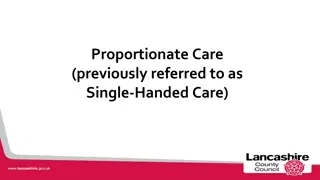National Standards for Health and Social Care Services
Explore the development of evidence-based standards in Ireland by HIQA through this teaching resource. Ideal for educators, trainers, managers, and policymakers in health and social care. Sections cover HIQA, standards, usage, tools, and impact.
Download Presentation
Please find below an Image/Link to download the presentation.
The content on the website is provided AS IS for your information and personal use only. It may not be sold, licensed, or shared on other websites without obtaining consent from the author. Download presentation by click this link. If you encounter any issues during the download, it is possible that the publisher has removed the file from their server.
Presentation Transcript
National Standards for Health and Social Care Services - An Introduction
Introduction What is the purpose of this slide deck? This slide deck has been developed by the Health Information and Quality Authority (HIQA) to provide a teaching resource on the development of evidence- based national standards for health and social care services in Ireland. Who is this slide deck for? This slide deck will be useful for those teaching health and social care students and those providing training for health and social care staff. Managers of health and social care services, policy-makers, and others who have a personal or professional interest in national standards may also find this slide deck useful.
Introduction How can this slide deck be used? The slide deck has been designed to be used in a flexible way. Content has been divided into different sections and these can be delivered together, or separately as individual modules. These slides may be adapted for teaching and training purposes. We ask that you acknowledge HIQA as the source of these materials. Fore the most recent version of this slide deck, visit our Learning Hub.
Content of the slide deck Section 1: About the Health Information and Quality Authority (HIQA) Section 2: About National Standards for Health and Social Care Services Section 3: How National Standards are used by HIQA and the Chief Inspector of Social Services Section 4: Implementation Support Tools (guidance) Section 5: Impact
Section 1. About the Health Information and Quality Authority (HIQA)
The Health Information and Quality Authority (HIQA) HIQA is an independent statutory authority, established HIQA s Values in 2007, to improve the safety and quality of health and Promoting and protecting human rights social care services for the public. Putting people first Being fair, objective and equitable HIQA s Mission Being open and accountable Protecting service users, and working with stakeholders to enhance and enable equity, quality and safety of Striving for excellence health and social care services for all people in Ireland . Promoting quality Working collaboratively
HIQAs Functions Standards & Quality Developing person-centred standards and tools (guidance) for health and social care services. Regulation Regulating residential services for older people, people with a disability and children s special care units, as well as medical exposure to ionising radiation (for example, X-rays). Monitoring Monitoring the quality and safety of health services and children s social services.
HIQAs Functions Health Technology Assessment Evaluating the clinical and cost-effectiveness of health programmes, policies, medicines, medical equipment, diagnostic and surgical techniques, and health promotion and protection activities. Health Information Developing a consistent and standardised approach to health and social care information, including in National Data Collections and eHealth services in Ireland. National Care Experience Programme Carrying out service-user experience surveys, including the National Inpatient Experience Survey, National Maternity Experience Survey and Nursing Home experience survey.
Health Information and Standards The Health Information and Standards Directorate aims to support a consistent and standardised approach to health and social care service provision and information in Ireland and bring about effective and sustainable improvements to Irish health and social care services. It has three core functions: 1. The Standards Team develops national standards and implementation support tools for health and social care services. Development of National Health and Social Care Standards 2. The Technical Standards Team and the Health Information Quality Team develop recommendations, national standards and guidance for the Irish eHealth and health information landscape, and assess against national standards. Informing and driving health information quality and eHealth 3. The National Care Experience Programme asks people about their experiences of care in order to improve the quality of health and social care services in Ireland. Surveying the experiences of people who use health and social care services
Section 2. About National Standards for Health and Social Care Services
What are National Standards National standards are a set of high-level outcomes that describe how services can achieve safe, quality, person-centred care and support. They are evidence-based and informed by engaging with those who use and provide our health and social care services. National Standards: provide a common language to describe what high-quality, safe, person-centred care looks like. create a basis for services to improve the quality and safety of the care they deliver, by identifying strengths and highlighting areas for improvement. assist people using services to understand what they should expect from a service. promote practice that is up to date, effective and consistent.
Legislative Basis for National Standards Under the Health Act, 2007 Section 8(1)(b): Set Standards on the safety and quality of services provided by the HSE, Tusla or service providers under Health Acts, Children Act and Childcare Act 1991 and advise the Ministers, HSE and Tusla in relation to the particular service in respect of which standards are set. Section 7: Promote safety and quality in the provision of health and social services for the benefit of the health and welfare of the public.
National Standards There is currently a total of 11 national standards developed by HIQA for health and social care services and 1 set of information management standards for national health and social care data collections. Overarching standards Social care standards Healthcare standards Information management standards
How National Standards are Developed Advisory Group and Focus Groups Scoping review and consultation Evidence review National standards Public consultation Total timeframe approx. 18-24 months HIQA follows a Standards Development Process to ensure national standards are: fit-for-purpose evidence based can be implemented in practice will ultimately improve the experience of people using services.
Standards Development Framework: A Principles-based Approach Available online from: https://www.hiqa.ie/sites/default/files/2021-09/Standards- Development-Framework-a-principles-based-approach.pdf
Principle 1: A human rights-based approach How a person experiences a human rights-based approach: My rights are protected and promoted by health and social care services and are explained to me in a way that I can understand. I am treated with dignity and respect and I do not experience discrimination for any reason when I am accessing or using services. I am valued and recognised as an individual who is able to participate in and exercise control over my life. I have a right to participate in decisions about my care and support, and when appropriate my family and the people caring for me are included in this process. Services work to support my participation. This ensures that I, and the important people in my life, can express our views, feelings and wishes in order to effect change in the care and support that I receive.
Principle 2: Safety and wellbeing How a person experiences safety and wellbeing: I am supported to be safe and live a whole and fulfilling life, free from harm or abuse. Services recognise that my needs and aspirations are unique and treat me as a partner when planning for my care and support. The services I use see my whole needs, not just the needs I am presenting with, and the care and support I receive helps to maintain and improve my overall health, wellbeing and development. Services work together with other services to make sure that I receive the right supports at the right time. I am supported to live a full life, to pursue my goals and to reach my potential.
Principle 3: Responsiveness How a person experiences responsive services: I receive care and support from skilled, experienced and trained staff who are clear about their role and responsibility in my care and support. These staff respond to my individual needs and circumstances in a timely and sensitive way and are informed by the best available evidence and information. Staff take the time to get to know me and see my needs, preferences and goals in a wider context, and do not focus on only meeting my most urgent needs. All staff involved in my care and support work together within and between services so that I receive the best possible care and support and they are supported to do this by the services they work in.
Principle 4: Accountability How a person experiences accountable services: I receive safe, consistent and high-quality care and support. I know who is responsible for delivering my care and support and I have confidence and trust in the health and social care services I access. The services I use are well managed and everyone knows and understands their roles and responsibilities and there is a culture of open communication, learning and reflection, and improvement. I have access to the care and support that I need and services work together to provide me with high-quality, coordinated and safe care and support and to make sure that I do not experience any gaps in my care and support.
Prioritisation Process for Development of National Standards HIQA uses a prioritisation process for the development and updating of national standards for health and social care services. This prioritisation process assists the identification of priority areas for potential national standards that best address the health and social care needs of the Irish population and which have the greatest impact in improving the outcomes of people using health and social care services.
Section 3. How National Standards are used by HIQA and Chief Inspector of Social Services
Inspection and monitoring of health and social care services In addition to being used by service providers and staff to drive quality improvements within services, and by people using services to know what they should expect from a well-run service, national standards are also used by HIQA and by the Chief Inspector of Social Services as part of monitoring and inspecting health and social care services. This can be done through a distinct monitoring programme against a specific set of standards or as part of a thematic inspection to drive quality improvements. National standards may also form the basis of assessment in the case of a review or a statutory investigation.
How National Standards are used by HIQAs Healthcare Regulation Directorate Under section 8(1)(c) of the Health Act 2007, HIQA has the function to monitor compliance with standards and to advise the Minister for Health and the HSE accordingly. HIQA may make recommendations for improvements, but under current legislation cannot enforce their implementation. Currently, HIQA s remit is to monitor healthcare services provided or funded by the HSE, excluding mental health. This includes 50 public acute hospitals, and rehabilitation and community inpatient healthcare services.
How National Standards are used by HIQAs Healthcare Regulation Directorate contd. HIQA monitors these services against national standards to promote continual, sustained quality improvements in healthcare services. The amendment of HIQA s functions under the Patient Safety Act will extend HIQA s monitoring function to include private hospitals and prescribed health services. HIQA also regulates medical exposure to ionising radiation in public and private healthcare and dental services.
How National Standards are used by the Chief Inspector of Social Services Under section 41 of the Health Act 2007, one of the functions of the Chief Inspector is to register and inspect designated centres to assess whether the registered provider is in compliance with the relevant regulations, and standards, if any, set by HIQA. There are three types of designated centres: designated centres for older people, designated centres for children with disabilities and for adults with disabilities, and special care units for children and young people. HIQA also monitors the quality and safety of services provided by Tusla to protect children and promote their welfare.
Health Information Review Programme HIQA has developed a structured review programme to assess compliance with the Information management standards for national health and social care data collections. A number of national data collections within the HSE have been reviewed to date, including 'BreastCheck the Hospital In-Patient Enquiry (HIPE) scheme, and the National Incident Management System (NIMS). To assist health and social care professionals improve their knowledge and skills in the area of information management, HIQA has developed an online learning course which includes the following modules: 1. 2. Introduction to data quality Developing a data quality framework
Section 4. Implementation Support Tools
Implementation Support Tools (guidance) HIQA develops implementation support tools to assist services and staff to implement the national standards in their setting, or as a guide to making improvements in a particular area. Throughout the standards development process, HIQA works to identify potential barriers and facilitators to the implementation of the standards and addresses these within the standards or through the development of additional support tools. Examples of implementation support tools developed to date include: - Online learning courses - Information leaflets - Policy briefs - Video animations - Academic slide decks - Easy-to-read guides All resources are available on the HIQA website www.hiqa.ie. The online learning courses are available through HSeLanD, in the course catalogue Health and Social Care Professionals . The courses should be completed on HSeLanD if a certificate of completion is required.
Implementation Support Tools National Standards for Adult Safeguarding Video animation for National Standards for Adult Safeguarding The online learning course is available on the HIQA website: National Standards for Adult Safeguarding: Putting the Standards into Practice. Leaflet for people using health and social care services setting out what these standards mean for them The course is also available on HSELanD.
Implementation Support Tools National Standards for infection prevention and control in community services Online learning: The online learning course National Standards for Infection prevention and control in community services: Putting the standards into practice can be accessed on www.hseland.ie Video animation outlining what infection prevention and control and antimicrobial stewardship are and what measures people and services can take to prevent the spread of infection. Information leaflet for people using services on the National IPC Standards. This outlines key messages from the standards and what people using services can do to prevent the spread of infections.
A Human Rights-based Approach in Health and Social Care Services HIQA is committed to promoting best practice in human rights within health and social care services. National standards, tools and inspection methodologies developed by HIQA are underpinned by the principles of equality and human rights. Reference to human rights and a human rights-based approach to care and support is made in a number of the national standards and a human rights- based approach is one of the four key principles of the new Standards Development Framework.
Human Rights-based Approach A Human Rights-based Approach ensures that the human rights of people using health and social care services are protected and supported in practice and embedded in service culture.
Tools to Support a Human Rights-based Approach in Health and Social Care Services Guidance for staff Decision-making flow charts Decision making video by people using services Academic Slide Deck FAQs Legal Framework
Tools to Support a Human Rights-based Approach in Health and Social Care Services Online learning courses
Tools to Support a Human Rights-based Approach in Health and Social Care Services Video animation on human rights in health and social care services A short video animation was launched to raise awareness among people using services of what they should expect from a health or social care service that is committed to respecting, protecting and promoting their human rights. This video is available to view on the HIQA website.
HIQA Learning Hub HIQA Learning Hub.
Section 5. Impact
Communicating the Work of HIQA & National Standards It is important to ensure the national standards and implementation support tools developed reach target audiences, and that they have an impact on the quality and safety of health and social care services in Ireland. HIQA increases awareness and understanding of its national standards, guidance, tools and resources through communication and dissemination. Academic papers Practice development guidance Service Provider Roadshows @hiqaireland @hiqa Online learning courses on HSeLanD Highlighting HIQA s work at conferences and on social media HIQA @hiqaireland Contribute to academic books
Implementation of National Standards A review of the literature was undertaken to identify and describe the most frequently reported enablers and barriers to implementing (inter)nationally endorsed health and social care standards. The review examined 35 studies in 11 countries and included 32 healthcare standards, three social care standards and two mental healthcare standards. 22 enablers and 24 barriers to implementing health and social care standards were identified. Study published in BMJ Quality and Safety: Systematic review: Factors that influence the implementation of (inter)nationally endorsed health and social care standards; a systematic review and meta-summary Yvonne Kelly, Niamh O Rourke, Rachel Flynn, Laura O Connor, Josephine Hegarty.
Enablers and Barriers Enablers to implementation of standards Services use support tools at local level to prompt compliance, improve performances and assure effective implementation of standards. Recruitment and availability of staff such as designated personnel who act as champions and role models are key elements to implementation of standards. Services have training courses to increase awareness and knowledge of the standards and help implement the standards. Barriers to implementation of standards Services have a lack of knowledge, awareness and understanding of what standards are. Services have insufficient time to implement standards due to increased service capacity and work overload.
Engagement with Stakeholders HIQA engages with staff working in, and people with experience of using health and social care services, to raise awareness of and to inform the development of its national standards, guidance, tools and resources. Engagement with key stakeholders is important as it: ensures that national standards, guidance, tools and resource developed by HIQA are relevant and fit for purpose. provides an opportunity for those using and working in services to inform and shape the content of the national standards, guidance, tools or resources in development.
How HIQA Engages with Stakeholders Engagement with key stakeholders includes: formation of Advisory Groups and working groups public consultations focus groups with people working in and using health and social care services, professional organisations and public bodies surveys online learning course evaluation surveys collaboration with an external organisations to share our learning and expertise formation of a children s reference group. International collaboration Online learning course evaluations Focus groups
Where to Find Out More You will find more information by visiting the Standards and Quality section on the HIQA website https://www.hiqa.ie. All resources are also available to view and download from the HIQA Learning Hub. HIQA Health Information and Standards Directorate Health and Social Care Standards standards@hiqa.ie
Follow us on: Contact us: Email: standards@hiqa.ie @hiqaireland @hiqa Phone: 01 814 7400 Sign up to HIQA news: www.hiqa.ie HIQA @hiqaireland If you found this slide deck useful, or have any comments or suggestions, we would love to hear from you!



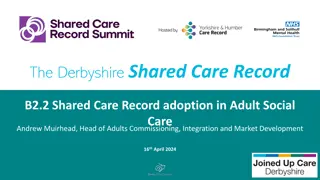









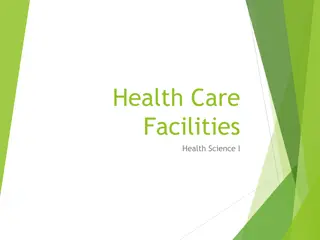


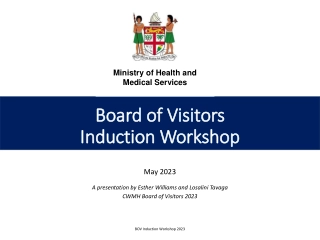
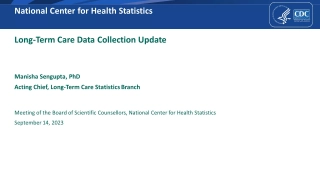



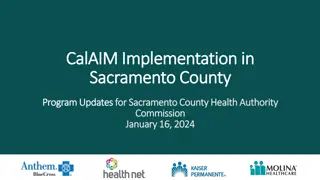





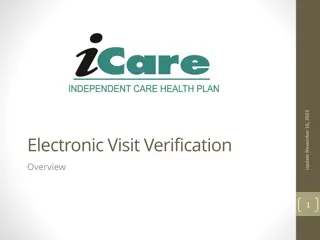

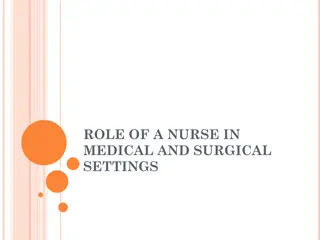



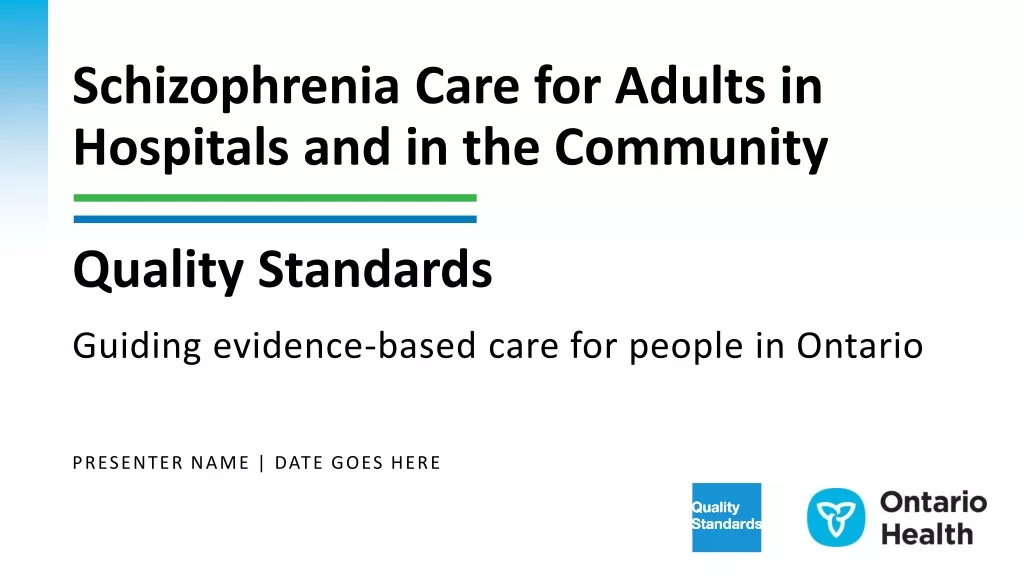

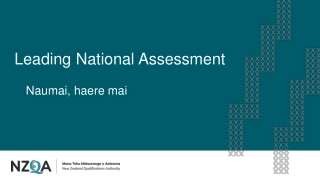



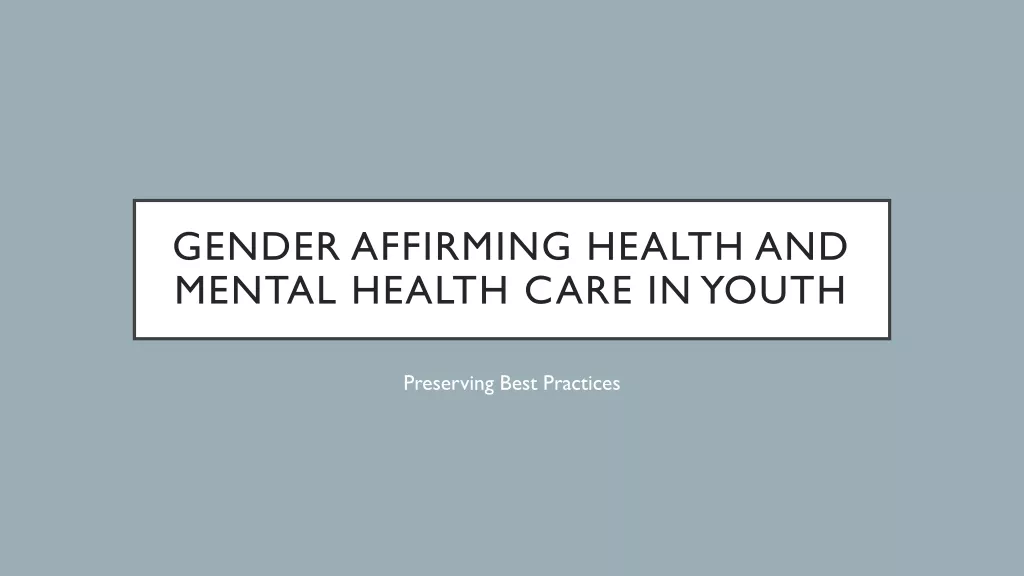
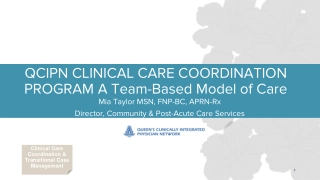
![Stakeholders' Responses to National Health Insurance Bill [B.11B-2019]: Overview](/thumb/69945/stakeholders-responses-to-national-health-insurance-bill-b-11b-2019-overview.jpg)
